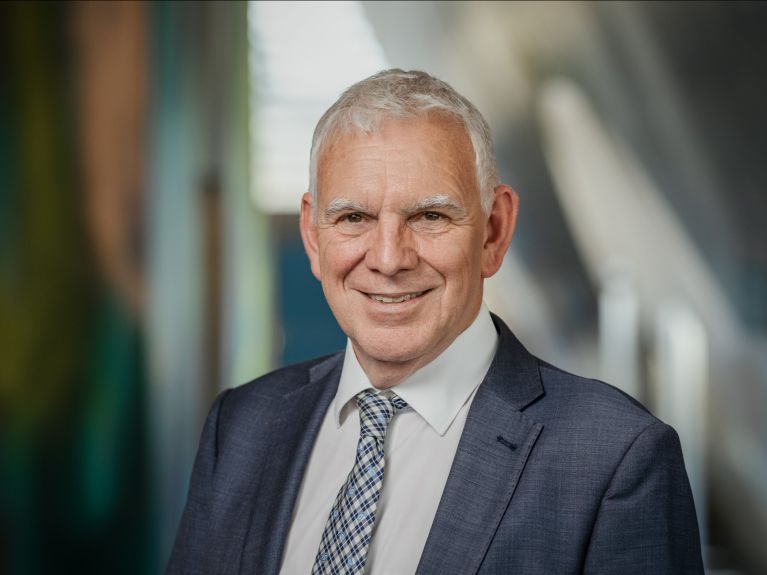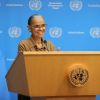“Climate protection costs money, but inactivity costs infinitely more”
State Secretary Jochen Flasbarth explains how Germany and the EU want to stay on the 1.5 degree path – and why the Amazon rainforest plays a decisive role.

Mr Flasbarth, what are the goals that Germany is taking to the 2025 World Climate Conference?
We want to demonstrate that ambitious climate protection and economic strength go hand in hand. It’s about using tangible measures to close the gap to the 1.5 degree limit. Together with the EU, we are committed to tripling renewable energies and doubling energy efficiency by 2030, as well as moving away from fossil fuels. COP30 in Belém is intended to send a strong signal regarding the global energy transition. Germany can contribute its experience from 20 years of energy transformation. It’s clear that multilateralism is the only way to solve the climate crisis – no country can do that on its own.
Every euro that’s invested will prevent future damage caused by floods, droughts and crop failures.
What exactly is the nature of Germany’s commitment?
Climate protection costs money, but inactivity costs infinitely more. As the world’s third-largest economy, Germany is providing over six billion euros annually until 2025 for international climate protection – to facilitate adaptation, climate protection and biodiversity in emerging and developing countries. That is both solidarity and foresight: Every euro that’s invested will prevent future damage caused by floods, droughts and crop failures. Climate financing simultaneously opens up opportunities for our economy – German technologies such as in hydrogen and the circular economy are in demand worldwide.
What role does Germany assume in the EU negotiations relating to climate policy?
Germany is a driving force for ambitious climate protection in Europe. We want the EU to speak with a strong, united voice – especially ahead of COP30. The new climate target for 2040 must be clearly aligned with the 1.5 degree limit. The EU Commission’s proposal to reduce emissions by 90 per cent is a step in the right direction. The EU has demonstrated that it can lead the way, for example in emissions trading, the Carbon Border Adjustment Mechanism and the Green Deal. It is crucial that we present a united front so that Europe remains a role model and other major emitters follow suit.
How does Germany support other countries with climate action?
Climate policyis only effective if it is fair. That’s why Germany seeks dialogue with emerging and developing countries as partners. We use the International Climate Initiative to fund global projects ranging from solar expansion to urban development. One example is the Climate Club: It involves more than 40 countries collaborating to decarbonise their industry. This is how active cooperation emerges – sharing knowledge, disseminating technologies, harmonising standards. It’s the only way for the global transition to succeed.
What responsibility does Brazil bear as the host of COP30?
Brazil bears huge responsibility for COP30 – and at the same time it has an opportunity. The Amazon rainforest is the lifeline of South America and the green lung of our global climate. As host, Brazil can introduce a new dynamic into international climate protection, such as via rainforest preservation and a fair energy transition. Germany stands by its side, supporting rainforest preservation and investing in sustainable development projects. It is crucial that brave decisions are made in Belém that actually help our planet.
About the interviewee
Jochen Flasbarth has been a State Secretary in the Federal Ministry for the Environment, Climate Action, Nature Conservation and Nuclear Safety since May 2025. The economist was president of the Nature and Biodiversity Conservation Union (NABU) and head of the Federal Environment Agency. He is one of Germany’s most experienced experts on climate and nature conservation.


